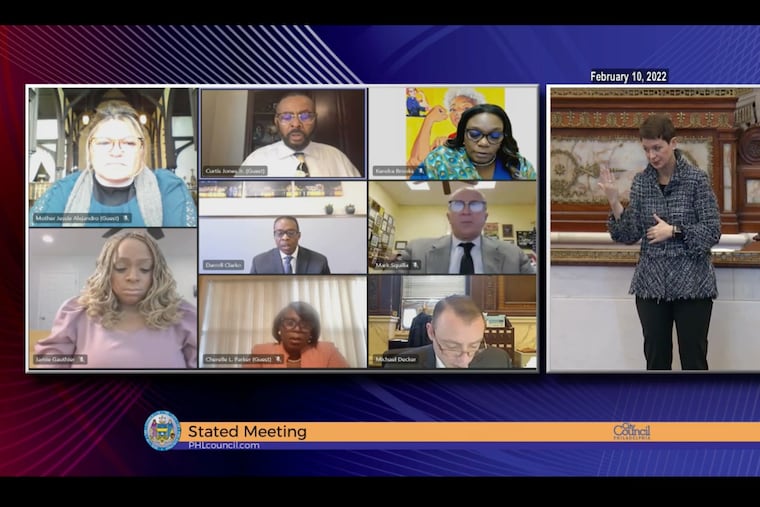Philly City Council adopted a new district map two days before its deadline
The adoption of the new map followed a largely behind-closed-doors negotiating process led by Council President Darrell L. Clarke.

Philadelphia City Council on Thursday adopted new district boundaries that largely mirror its current districts, ending the once-a-decade redistricting process two days before lawmakers’ deadline to approve a new map.
The new map will first be used next year when all Council seats will be on the ballot as well as the race to replace outgoing Mayor Jim Kenney. Ten of Council’s 17 members represent geographic districts, and the others are elected citywide.
Crafted in behind-closed-doors negotiations led by Council President Darrell L. Clarke, the map adjusts borders to account for changes in population over the previous decade without significantly reshaping the current districts.
Before giving the plan final approval on Thursday, Council last week adopted minor amendments to Clarke’s original proposal, in part to fix a disparity in the districts’ populations that could have made the map vulnerable to a legal challenge over equal representation.
It’s possible that Thursday’s vote may not be the final word on the Council map before the next census in 2030. Clarke has opened the door for lawmakers to revisit the maps to account for “prison gerrymandering,” an increasingly common approach to redistricting in which map-drawers count incarcerated people in their last known addresses instead of the jail or prison holding them.
Advocates of revising how prisoners are counted, many of whom spoke at a hearing on Clarke’s plan, contend that a change would prevent districts with jails or prisons from being overrepresented. For instance, the population of Council’s 6th District, which was recently vacated by former Councilmember Bobby Henon after his conviction on public corruption charges, includes almost 5,000 people who were counted at the city’s State Road jail complex in the Lower Northeast, inflating the voting power of the district’s permanent residents.
Thursday’s unanimous adoption of the new districts came two days before the Feb. 12 deadline set by the city’s Home Rule Charter, after which the city would have had to withhold paychecks from councilmembers.
Also Thursday, Councilmember Allan Domb introduced legislation to establish term limits for councilmembers. The measure, which would require a two-thirds vote from Council as well as approval from voters, would prevent members from serving more than four four-year terms.
“Term limits allow for fresh ideas and increase diversity in City Council candidates — creating a more engaging democratic process for voters and candidates,” Domb said in a statement. “Term limits encourage officials to make bold policy decisions and to hold leaders accountable.”
Domb has tried unsuccessfully to establish Council term limits in the past, and his latest effort also faces an uphill battle. The bill he introduced Thursday has five cosponsors. But Domb will need at least 11 colleagues to support his plan in order to send it to the voters.
Currently, only Clarke and Councilmember Brian O’Neill have served longer than four terms. Councilmembers Curtis Jones Jr. and Maria Quiñones-Sánchez are in their fourth terms. O’Neill is now in his 11th term, having taken office 42 years ago.
Domb’s measure does not affect other city elected officials, but the Charter already prevents Philadelphia mayors from serving more than two consecutive four-year terms. Mayors can run for a third term once they have sat out at least one election cycle.
There are no term limits for the district attorney, city controller, sheriff, or register of wills. Former Register of Wills Ronald Donatucci was in office for 40 years before his defeat in 2019. He died later that year.